We import a lot of our food... we need a food revolution
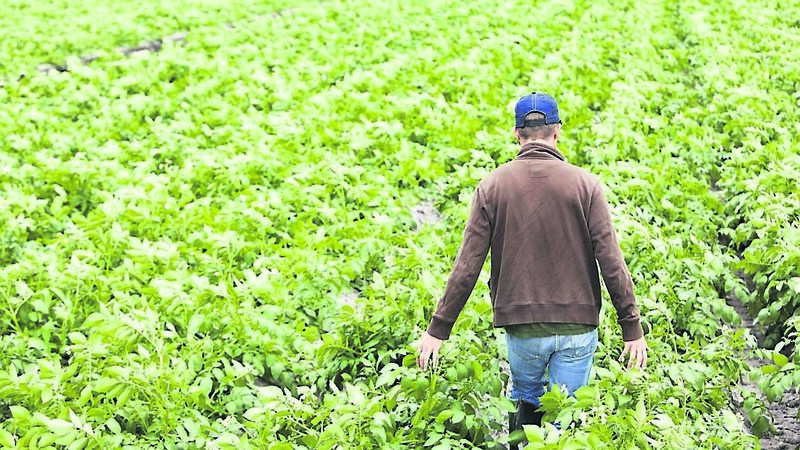
When was the last time you saw a field of potatoes? Dairy is a more lucrative option for farmers. Picture: Stock
CAN you remember the last time you saw a field of potatoes or onions? The answer is probably not in recent times. One of the main reasons for this is we now import a lot of our food.
There has been a huge increase in the cost of living in recent times, and rising grocery prices are part of that. These costs aren’t helped by the fact that we import the majority of our food.
Ireland, despite being a beautiful, green agricultural country, is simply not self-sufficient where food is concerned.
You would imagine that, given the fact we have 4.4 million hectares of agricultural land in this country, we would be major exporters of fresh fruit and vegetables. Unfortunately, this is not the case.
In 2020, we imported 75,000 tonnes of potatoes, 38,000 tons of onions, and 25,000 tonnes of cabbage, all crops that can be grown quite easily in our climate. We even imported milk and cheese, which many who live in rural areas among the green fields of Cork will find hard to believe.
If there was a crisis in logistics, drought or floods in countries that we import from, this could have a significant impact on our food supplies.
Put simply, the ability to grow food in our country is impeded by policy. Currently, most of our agricultural land is used for pasture (80%), with only 8% allocated to cereals, fruit and vegetables. This is because dairy farming is far more lucrative than food production, which can be very labour intensive.
To add insult to injury, a lot of the dairy farms use artificial synthetic fertilisers to boost the growth of grass on their farms. This, in turn, depletes the beneficial microorganisms in the soil, and the following year extra synthetic fertilisers must be used to maintain the same growth levels.
Speaking at The Wild Minds nature festival in Fenit, Co Kerry, recently, Klaus Laitenberger, an organic gardener and consultant, said: “The production of this artificial fertiliser produces more CO2 emissions than the entire worldwide aviation industry per year.”
Synthetic fertilisers are also linked with causing algae blooms and killing off marine life, as the ‘run off’ from the land seeps into rivers and lakes.
We have a dependency on the use of synthetic fertiliser, which is becoming a vicious circle. Last year we imported 1.6 million tonnes of it to Ireland.
According to an RTÉ report, it has also doubled in cost since last year, due to factors such as disruption on imports from Russia and Belarus due to the Russian / Ukraine war and the increase in the cost of natural gas which is used in its production.
The inflation of these costs also has an impact on the cost of our food. In a time when we are all concerned about the climate crisis and the protection of our food sources, our dependency on this type of farming should be addressed.
This vicious circle is also compounded by the fact we also import animal food products which are largely made with soya.
Soya, which is native to Asia, is a source of protein to feed farm animals. This is genetically modified to withstand being sprayed with round-up, a herbicide, to kill the weeds near the crops.
In Brazil, Argentina and Paraguay soya bean farming has also been linked to deforestation. Forests, as we know, help to reduce Co2 in the atmosphere.
So, not only are we adding to the increase of Co2 in the atmosphere by importing these products, but we are also introducing genetically modified food into our food chain.
There has been a move in recent times towards organic farming.
However, agricultural training is still largely orientated towards chemical systems, rather than organic. If a farmer wants to farm organically, they must seek out an organic farm college to do so.
According to Caroline Robinson, an organic farmer who sells her produce in the Coal Quay market on Saturdays, “there needs to be a change in mindset”.
She insists that “the consumer needs to eat seasonally” and maintains that organic food “has more energy because it is grown organically. The whole thing is a mindset and when you buy organic food you know it’s good for you”.
The cost is very competitive when you buy directly from the producers, and with no logistics cost or air miles to factor in, the food is fresher.
It’s not all doom and gloom. We live in a mild climate where just about any vegetable can be grown quite easily. We have plenty of land and water to produce our own food.
Klaus Laitenberger stated in his book, The Self-Sufficient Garden, that we only need 50,000 hectares to provide enough food to feed our five million population in Ireland, and yet we currently only produce enough vegetables to feed a million people.
There are a lot of small producers around the country, but this number needs to be increased and supported.
Policy needs to change so that farmers are encouraged to move towards an organic system which will make us self-sufficient as a country and reduce our dependency imports.
We as individuals can make a difference as this move to change could be led by consumer choices and demand
Sometimes, people say, I can’t afford to buy local organically produced food as I have a large family. However, just by changing one thing, it can make a difference.
We need to become aware of locally produced food and eat food that is in season. The power of one can be immense and will contribute to helping to protect our food supplies and in time allow us as a country to become more self-sufficient.
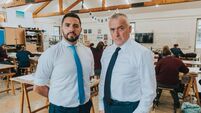


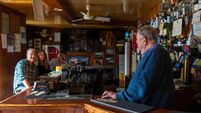
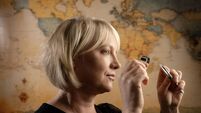
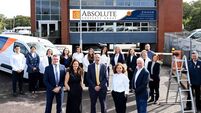

 App?
App?


